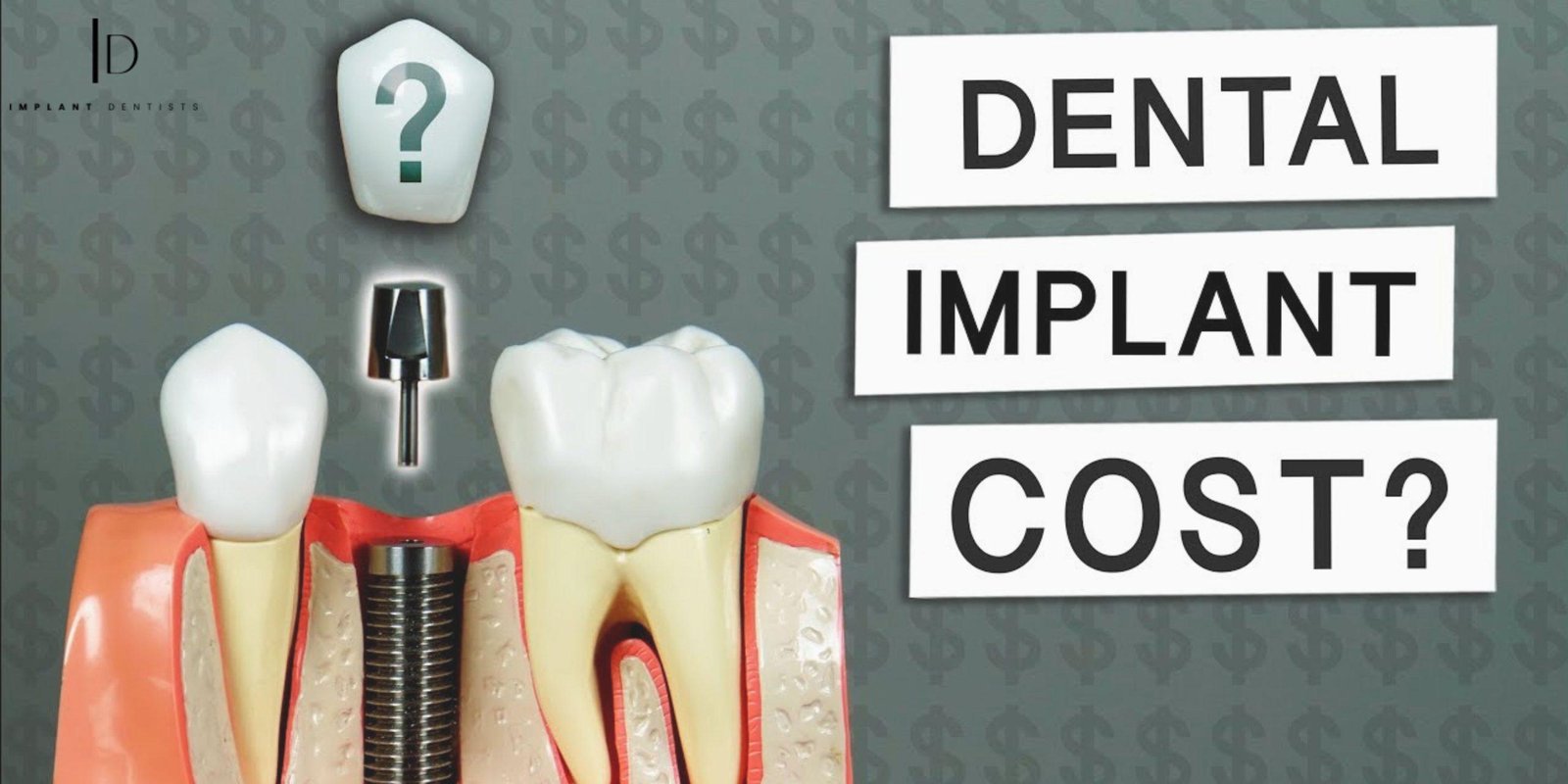
What Factors Influence the Cost of Dental Implants?
March 13, 2024Dreaming of a flawless smile with permanent replacements for missing teeth? Dental implants are a fantastic option, offering both aesthetics and functionality. But before you embark on this exciting journey, understanding the cost factors involved is crucial.
While there’s no single price tag, several key elements significantly influence the final bill. Let’s delve deeper into the main ones:
1. Number and Location of Implants
This plays a major role. Replacing a single tooth is naturally less expensive than a full arch of implants. Additionally, front teeth often require more sophisticated implants due to their high visibility. These factors contribute to a higher price tag for implants in these areas. Additionally, the location of the missing teeth within the mouth can influence the pricing. For instance, front teeth, which are more visible when smiling, talking, or eating, often require more sophisticated implants to achieve optimal aesthetics. These implants may need to be customized in shape, size, and color to seamlessly blend with the natural teeth surrounding them.
2. Complexity of the Procedure
Not all implant placements are created equal. Simple, straightforward cases will have a lower cost compared to situations requiring additional procedures. Bone grafting, for example, might be necessary to strengthen the jawbone before implant insertion. This adds to the overall treatment complexity and cost. Bone grafting involves transplanting bone tissue from elsewhere in the body or using synthetic materials to augment the jawbone. This additional step not only increases the complexity of the treatment but also incurs extra costs for the materials, surgical procedures, and extended recovery time.
3. Material Selection
Both the implant post itself and the restoration (crown, bridge, etc.) come in varying material options. Premium materials known for their durability and aesthetics typically cost more. Discuss these options with your dentist to find the best balance between cost and your desired outcome. However, patients may also have the option of choosing zirconia implants, which are known for their natural appearance and compatibility with those who have metal sensitivities. While titanium implants tend to be more cost-effective, zirconia implants often come with a higher price tag due to their advanced manufacturing process and aesthetic qualities.
4. Geographic Location
Dental costs, like many other services, can vary depending on your location. Urban areas with a higher cost of living often have pricier dental procedures compared to rural areas. In urban centers, where overhead costs such as rent, utilities, and staff salaries are typically higher, dental practices may need to adjust their pricing to cover these expenses. Additionally, urban areas tend to have a higher concentration of specialized dental professionals and state-of-the-art facilities, which can also contribute to higher costs.
5. Dentist’s Expertise and Experience
A skilled and experienced dentist with a proven track record in implant dentistry may command a higher fee. However, their expertise can ensure a smooth procedure, successful long-term results, and potentially save you money by avoiding complications down the line. Dentists who specialize in implant dentistry have undergone extensive training and accumulated years of experience in performing implant procedures. They possess a deep understanding of the complexities involved in dental implant placement, including assessing bone density, determining optimal implant placement, and ensuring proper integration with surrounding tissues.
Managing the Cost of Dental Implants
While the initial investment in dental implants can seem significant, consider it a long-term solution for a healthy, beautiful smile. Here are some tips to manage the cost:
- Consult with your dentist: Discuss your specific needs and get a personalized cost estimate. Every patient’s dental implant journey is unique, and your individual needs will play a significant role in determining the overall cost of treatment. During your initial consultation with your dentist or oral surgeon, you’ll have the opportunity to discuss your dental health goals, concerns, and any specific preferences you may have regarding the type of implants or treatment options.
- Explore insurance coverage: While coverage for implants varies, some dental plans may offer partial reimbursement. This is because dental insurance plans often categorize dental implants as a cosmetic or elective treatment rather than a medically necessary procedure. However, some dental insurance plans may offer partial reimbursement or coverage for certain aspects of the dental implant treatment, such as the initial consultation, diagnostic imaging, or any necessary adjunctive procedures like bone grafting
- Financing options: Many dental practices offer flexible payment plans to make this investment more manageable. They often provide flexible payment plans. These payment plans allow patients to spread out the cost of treatment over time, breaking it down into smaller, more affordable monthly installments. Flexible payment plans typically involve arranging a payment schedule with the dental practice, allowing patients to pay for their dental implants gradually rather than in one lump sum.
Conclusion
Remember, a healthy discussion with your dentist is key to navigating the cost of dental implants. They can provide a clear picture of the factors at play and help you find a solution that fits your budget and smile goals. Your dentist will conduct a comprehensive evaluation of your oral health, including the number of teeth to be replaced, the condition of your jawbone, and any additional procedures that may be necessary. They will take the time to explain the different types of dental implants available, along with their respective costs and benefits.
